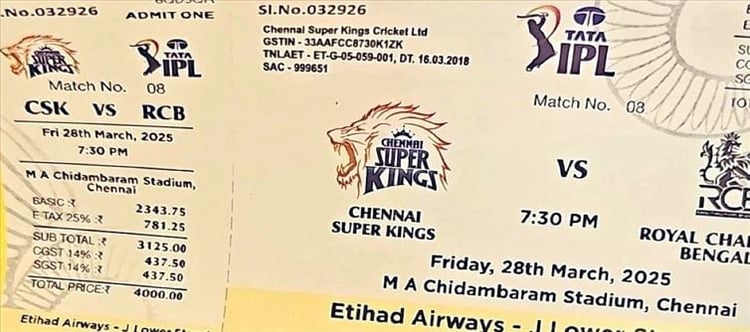
"The 'Tax-on-Tax' policy playbook of india is a mini masterclass in your ₹4,000 IPL ticket."
"You're not just paying to watch the match. You're funding a policy loophole," says efiletax, a tax solutions provider, in a post on X.
The post breaks down the math behind that seemingly flat ₹4,000 price tag:
Base price: ₹2,343.75
Entertainment Tax (25%): ₹781.25
Subtotal: ₹3,125.00
GST (28% on subtotal): ₹875
CGST: ₹437.50
SGST: ₹437.50
The final ₹875 in GST is applied on the subtotal that already includes entertainment tax rather than the basic ticket price. The outcome? In effect, you're paying taxes on taxes.
"The base value ought to be subject to GST. However, the essay points out that it is a structural oddity that the GST also applies when states impose an entertainment tax first.
And the issue isn't limited to cricket.
"This isn't just IPL. Concerts, stand-ups, festivals- same story. Layered taxation wrapped in 'one nation one tax' packaging."
The post also compares global models:
US: No GST, occasional amusement tax
UK: Flat VAT at 20%
India: Entertainment Tax + GST
"So your ₹4,000 ticket? You're paying for the match… and for a tax design that stacks costs quietly. Next time someone says 'GST simplified taxes'… Just show them this ticket."




 click and follow Indiaherald WhatsApp channel
click and follow Indiaherald WhatsApp channel